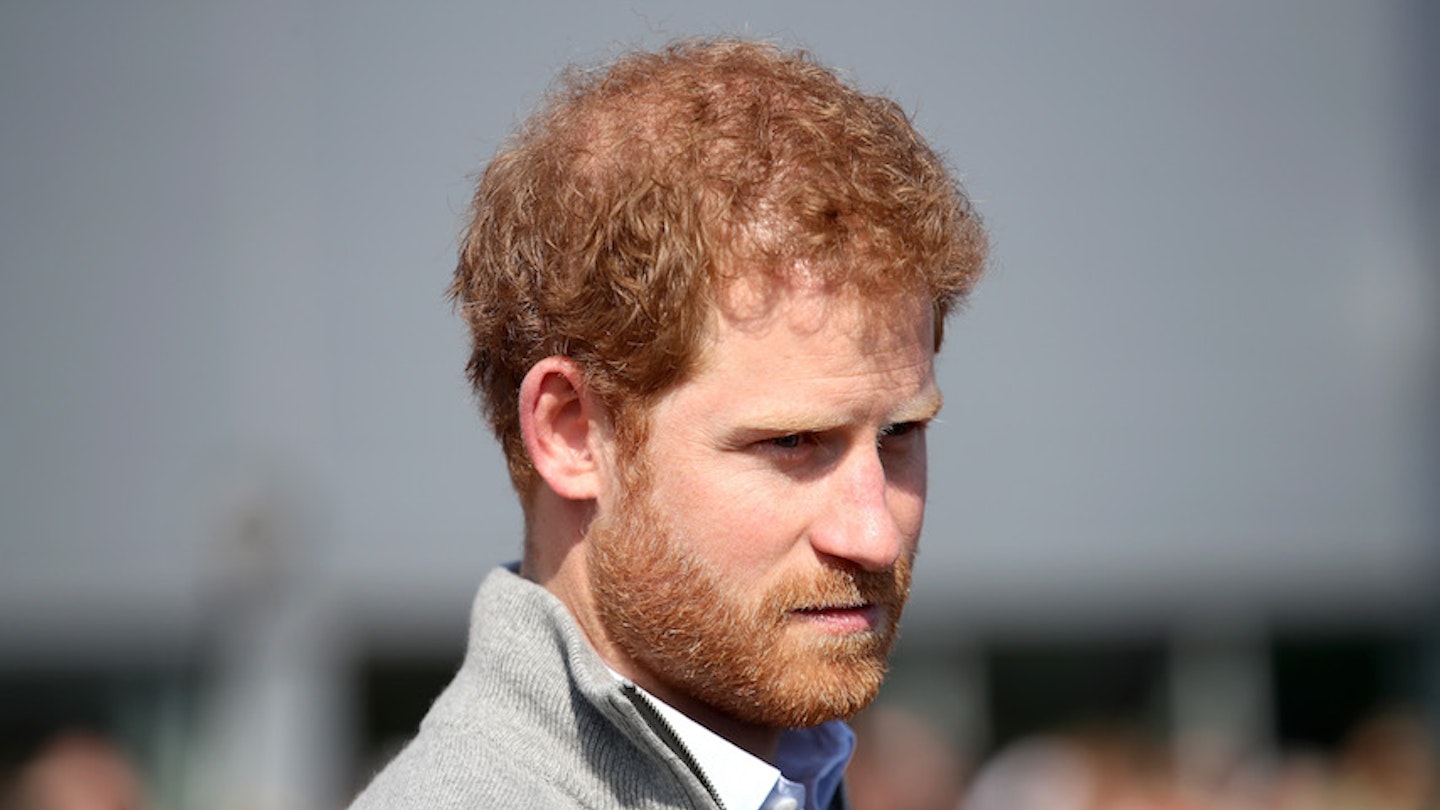In what can only be described as an unprecedented interview, Prince Harry has revealed he sought counselling in his twenties to help deal with his grief over his mother's death.
Speaking to The Telegraph as part of Bryony Gordon's Mad World podcast – which interviews high profile individuals about their experiences of mental health – the prince revealed he 'shut down all his emotions' for 20 years following the death of his mother, Diana, when he was 12 years old, and in spite of encouragement from his brother, Prince William, only decided to seek help when the timing was right.
'It’s all about timing. And for me personally, my brother, you know, bless him, he was a huge support to me. He kept saying this is not right, this is not normal, you need to talk to [someone] about stuff, it’s OK.
'The timing wasn’t right. You need to feel it in yourself, you need to find the right person to talk to as well.'
Speaking about the loss of his mother, Harry said, 'My way of dealing with it was sticking my head in the sand, refusing to ever think about my mum, because why would that help?
'[I thought] it’s only going to make you sad, it’s not going to bring her back.
'So from an emotional side, I was like ‘right, don’t ever let your emotions be part of anything’.
'So I was a typical 20, 25, 28-year-old running around going ‘life is great’, or ‘life is fine’ and that was exactly it.
'And then [I] started to have a few conversations and actually all of a sudden, all of this grief that I have never processed started to come to the forefront and I was like, there is actually a lot of stuff here that I need to deal with.'
Harry revealed that at Royal engagements he suffered from what he referred to as 'flight or fight' without understanding why that was or even what it was.
He addressed rumours that he suffered psychological problems on account of his time in the army in Afghanistan, saying, 'I can safely say it’s not Afghanistan-related. I’m not one of those guys that has had to see my best mate blown up next to me and have to apply a tourniquet to both their legs. Luckily, thank God, I wasn’t one of those people.'
On the impact of his problems, Harry said: 'I can safely say that losing my mum at the age of 12, and therefore shutting down all of my emotions for the last 20 years, has had a quite serious effect on not only my personal life but my work as well.
'I have probably been very close to a complete breakdown on numerous occasions when all sorts of grief and, sort of, lies and misconceptions and everything are coming to you from every angle.'
He said it was 'only two years, so I can count myself very very lucky... two years of total chaos, and I couldn't put my finger on it. I didn't know what was wrong.'
To help him cope he said he visited a shrink 'more than a couple of times' and revealed, 'the experience I have had is that once you start talking about it, you realise that actually you’re part of quite a big club'.
He waxed lyrical about the benefits of exercise and experiencing nature as fundamental to good mental health, revealing he took up boxing to 'let out aggression' and reflected that doing so, 'really saved me because I was on the verge of punching someone – so being able to punch someone who had pads was certainly easier.'
The conversation stemmed from the prince's work with the Heads Together campaign; an initiative set up by him and his brother and sister-in-law – the Duke and Duchess of Cambridge – to get the UK talking about issues surrounding mental health. It is the official charity of the Virgin London Marathon this year, and the Mad World podcast journalist, Bryony – who suffers from OCD and depression – is running the marathon for it.
'What we are trying to do is normalise the conversation,' Harry said, 'to the point where anyone can sit down and have a coffee and just go ‘you know what, I’ve had a really s--- day, can I just tell about it? Because then you walk away and it’s done.'
He also said, 'I know there is huge merit in talking about your issues and the only thing about keeping it quiet is that it’s only ever going to make it worse.
'Not just for you but everybody else around you as well because you become a problem. I, through a lot of my twenties, was a problem and I didn’t know how to deal with it.'
Today, he said he is in a 'good place' – although admitted the prospect of speaking in the interview made him 'a little nervous, a little tight in the chest'.
On the topic of speaking about mental health issues, however, Harry said: 'I can’t encourage people enough to just have that conversation because you will be surprised firstly, how much support you get and secondly, how many people literally are longing for you to come out.'
Here's hoping this groundbreaking interview serves as a catalyst enabling many to take that very brave, first step and start talking.
READ MORE: Adwoa Aboah opens up about her battle with depression
READ MORE: Why is it so hard for us to accept that Instagram is a forum for boasting
